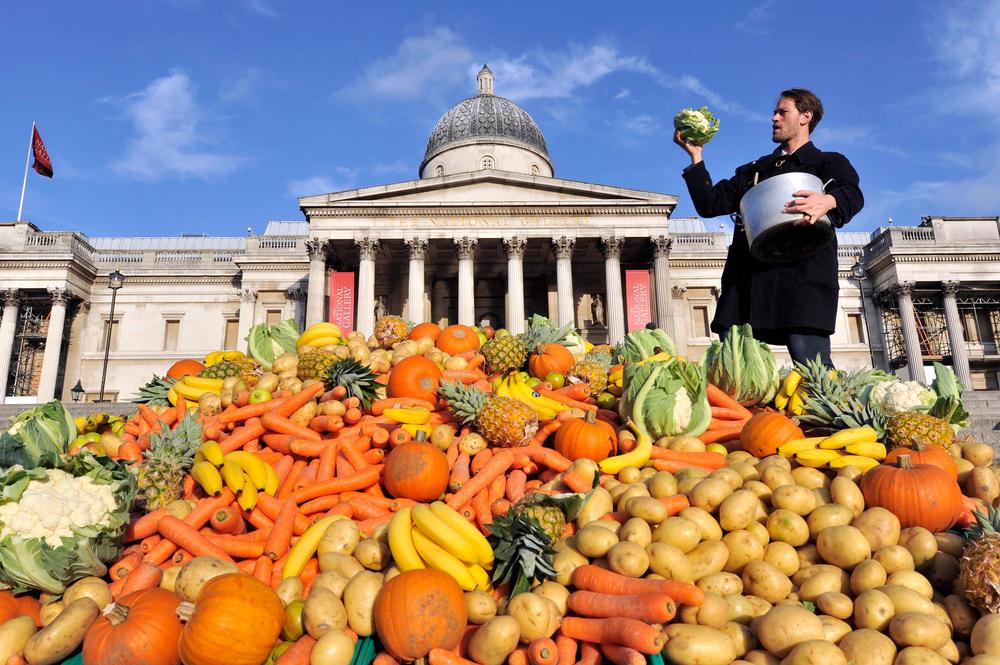Reducing food waste can be an important step toward reducing your carbon footprint and helping the environment, as well as your bottom line. This article provides helpful tips to help you reduce food waste, no matter how much of it you produce now.
Reduce the amount of food you throw away
Think about how much trash you produce over a year now and multiply that by every person in America. There are an estimated 35 million tons of wasted food in America each year, which equals more than 40 percent of all food produced. Food is responsible for 20 percent of our nation’s greenhouse gas emissions, according to Environmental Protection Agency estimates. If Americans only threw away 15 percent of their unused or uneaten food less than half as much as we do now it would be like taking 7 million cars off the road. That’s why reducing your household’s grocery budget can also benefit climate change efforts.
Donate edible leftovers
The U.S. Department of Agriculture estimates that 90 billion pounds of food go uneaten every year in America. That’s about 21 percent of all food or $161 billion worth of edible leftovers more than enough to feed another 50 million Americans annually. While some may argue it’s important to finish what you started, in many cases you’re better off donating your leftovers than tossing them out. When considering which foods are best suited for donation, look at their shelf life before making a decision. The sooner it will be consumed after being donated, the better.
If you want to donate leftover food but aren’t sure where to start, check with local shelters and non-profits. Many have partnerships with grocery stores and restaurants so they can pick up donations on behalf of donors. It’s also helpful to know that federal law protects donors from liability when they donate food in good faith so even if something is later determined to make someone sick, you won’t be held liable as long as you weren’t aware of any issues when you made your donation. Some organizations even provide tax deductions for donations. If these options don’t work for you, consider composting instead it keeps organic material out of landfills while providing farmers with valuable nutrients they can use on crops.
Source: click here.
Buy imperfect produce
You may be able to purchase imperfect produce from your local grocery store or farmers’ market at a discounted price. These foods are perfectly safe for consumption but don’t meet rigid cosmetic standards for products sold in supermarkets. If you can resist that first superficial judgment about your product, you can end up saving quite a bit of money on groceries. And once you get used to eating what is commonly referred to as ugly fruit, it won’t seem like such a strange concept. Get More Info From The Feldman Blog
Use eggshells as fertilizer
Eggshells are full of minerals, but we normally throw them away. However, those shells can be used as a fertilizer for your houseplants or garden. Here’s how: After cracking your eggs over a bowl or plate, run water over each shell; scrape off any bits of yolk or white that didn’t get mixed in with your ingredient; dump out excess water; put eggshells on a paper towel to dry overnight; next day, use an old coffee grinder or mortar and pestle to make powder or use kitchen scissors to carefully cut up shells into smaller pieces. Store the eggshell powder in a tightly sealed jar until you’re ready to use it. It’s great in potting soil when planting tomatoes or peppers.
Compost your scraps
Instead of throwing all your kitchen scraps into a trash bin, be a little more conscientious. Instead of throwing it away, place it in a compost bucket. If you don’t have space for one at home, then use public composting bins when they’re available. The rotting process produces methane, which can trap heat in Earth’s atmosphere thus contributing to global warming. It may seem like a small gesture today, but with over $40 billion worth of food wasted every year in America alone, you could make an impact on climate change without even trying. By composting your scraps now, you’ll save money and waste less in the future too.
Conclusion
We all want a better future for our planet. But to achieve it, we can’t just ignore our trash — we have to actively work at making things more sustainable. We have a long way to go, but even small changes can make a big difference. One place we can start is with food waste. Food production is extremely energy-intensive, but even more, so is throwing away all that wasted edible food that ends up in landfills. So let’s do something about it: Don’t throw away your leftovers; donate them if you can’t finish them or freeze them for later use! It’s an easy win-win situation with far-reaching benefits for your health, wallet, and planet.
